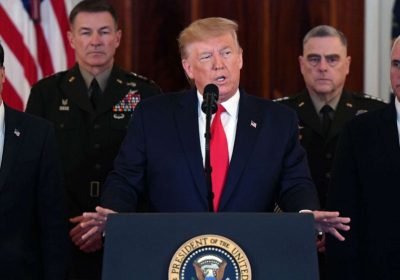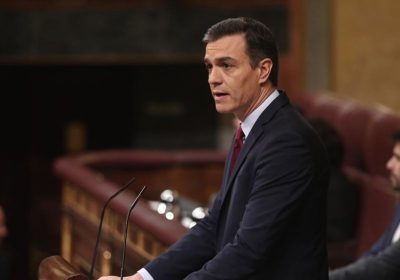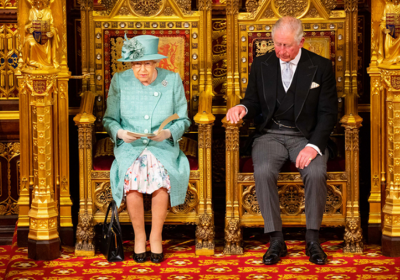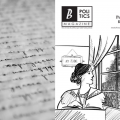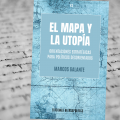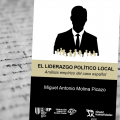If we sincerely mean to accommodate the difference between the two countries, and to establish their union on more firm and constitutional principles, we must take into consideration a number of facts which led the Parliament to pass the acts complained of, since the year 1763, and the real state of the Colonies. A clear and perfect knowledge of these matters only can lead us to the ground of substantial redress and permanent harmony.
I will therefore call your recollection to the dangerous situation of the Colonies from the intrigues of France, and the incursions of the Canadians and their Indian allies, at the commencement of the last war. None of us can be ignorant of the just sense they then entertained of that danger, and of their incapacity to defend themselves against it, nor of the supplications made to the Parent State for its assistance, nor of the cheerfulness with which Great-Britain sent over her fleets and armies for their protection, of the millions she expended in that protection, and of the happy consequences which attended it.
In this state of the Colonies it was not unreasonable to expect that Parliament would have levied a tax on them proportionate to their wealth, and the sums raised in Great Britain. Her ancient right, so often exercised, and never controverted, enabled her, and the occasion invited her, to do it. And yet, not knowing their wealth, a generous tenderness arising from the fear of doing them injustice, induced Parliament to for bear to levy aids upon them–It left the Colonies to do justice to themselves and to the nation. And moreover, in order to allure them to a discharge of their duty, it offered to reimburse those Colonies which should generously grant the aids that were necessary to their own safety. But what was the conduct of the Colonies on this occasion, in which their own existence was immediately concerned? However painful it may be for me to repeat, or you to hear, I must remind you of it. You all know there were Colonies which at some times granted liberal aids, and at others nothing; other Colonies gave nothing during the war; none gave equitably in proportion to their wealth, and all that did give were actuated by partial and self-interested motives, and gave only in proportion to the approach or remoteness of the danger. These delinquencies were occasioned by the want of the exercise of some supreme power to ascertain, with equity, their proportions of aids, and to over-rule the particular passions, prejudices, and interests, of the several Colonies.
To remedy these mischiefs, Parliament was naturally led to exercise the power which had been, by its predecessors, so often exercised over the Colonies, and to pass the Stamp Act. Against this act, the Colonies petitioned Parliament, and denied its authority. Instead of proposing some remedy, by which that authority should be rendered more equitable and more constitutional over the Colonies, the petitions rested in a declaration that the Colonies could not be represented in that body. This justly alarmed the British Senate. It was thought and called by the ablest men and Britain, a clear and explicit declaration of the American Independence, and compelled the Parliament to pass the Declaratory Act, in order to save its ancient and incontrovertible right of supremacy over all the parts of the empire. By this injudicious step the cause of our complaints became fixed, and instead of obtaining a constitutional reformation of the authority of Parliament over the Colonies, it brought on an explicit declaration of a right in Parliament to exercise absolute and unparticipated power over them . . .
In order to establish those principles, upon which alone American relief ought, in reason and policy, to be founded, I will take a brief view of the arguments on both sides of the great question between the two countries–a question in its magnitude and importance exceeded by none that has been ever agitated in the councils of any nation. The advocates for the supremacy of Parliament over the Colonies contend, that there must be one supreme legislative head in every civil society, whose authority must extend to the regulation and final decision of every matter susceptible of human direction; and that every member of the society, whether political, official, or individual must be subordinate to its supreme will, signified in its laws: that this supremacy and subordination are essential in the constitution of all States, whatever may be their forms; that no society ever did or could exist, without it; and that these truths are solidly established in the practice of all governments, and confirmed by the concurrent authority of all writers on the subject of civil society.
These advocates also assert, what we cannot deny–That the discovery of the Colonies was made under a commission granted by the supreme authority of the British State, that they have been settled under that authority. and therefore are truly the property of that State. Parliamentary jurisdiction has been constantly exercised over them from their first settlement; its executive authority has ever run through all their inferior political systems: the Colonists have ever sworn allegiance to the British State, and have been considered, both by the State and by themselves, as subjects of the British Government. Protection and allegiance are reciprocal duties; the one cannot exist without the other. The Colonies cannot claim the protection of Britain upon any principle of reason or law, while they deny its supreme authority. Upon this ground the authority of Parliament stands too firm to be shaken by any arguments whatever; and therefore to deny that authority, and at the same time to declare their incapacity to be represented, amounts to a full and explicit declaration of independence.
In regard to the political state of the Colonies, you must know that they are so many inferior societies, disunited and unconnected in polity. That while they deny the authority of Parliament, they are, in respect to each other, in a perfect state of nature, destitute of any supreme direction or decision whatever, and incompetent to the grant of national aids, or any other general measure whatever, even to the settlement of differences among themselves . . .
You also knew that the seeds of discord are plentifully sowed in the constitution of the Colonies; that they are already grown to maturity, and have more than once broke out into open hostilities. They are at this moment only suppressed by the authority of the Parent State; and should that authority be weakened or annulled, many subjects of unsettled disputes, and which in that case, can only be settled by an appeal to the sword, must involve us in all the horrors of civil war . . .
Having thus briefly stated the arguments in favour of parliamentary authority, and considered the state of the Colonies, I am free to confess that the exercise of that authority is not perfectly constitutional in respect to the Colonies. We know that the whole landed interest of Britain is represented in that body, while neither the land nor the people of America hold the least participation in the legislative authority of the State. Representation, or a participation in the supreme councils of the State, is the great principle upon which the freedom of the British Government is established and secured. I also acknowledge, that that territory whose people have no enjoyment of this privilege, are subject to an authority unrestrained and absolute; and if the liberty of the subject were not essentially concerned in it, I should reject a distinction so odious between members of the same state, so long as it shall be continued. I wish to see it exploded, and the right to participate in the supreme councils of the State extended, in some form, not only to America, but to all the British dominions; otherwise I fear that profound and excellent fabrick of civil polity will, ere long, crumble to pieces . . .
As to the tax, it is neither unjust or oppressive, it being rather a relief than a burthen; but it is want of constitutional principle in the authority that passed it, which is the ground for complaint. This, and this only, is the source of American grievances. Here, and here only, is the defect; and if this defect were removed, a foundation would be laid for the relief of every American complaint; the obnoxious statutes would of course be repealed, and others would be made, with the assent of the Colonies, to answer the same and better purposes; the mischiefs arising from the disunion of the Colonies would be removed; their freedom would be established, and their subordination fixed on solid constitutional principles.
Desirous as I am to promote the freedom of the Colonies, and to prevent the mischiefs which will attend a military contest with Great-Britain, I must intreat you to desert the measures which have been so injudiciously and ineffectually pursued by antecedent Assemblies. Let us thoroughly investigate the subject matter in dispute, and endeavour to find from that investigation the means of perfect and permanent redress . . . I would therefore acknowledge the necessity of the supreme authority of Parliament over the Colonies, because it is a proposition which we cannot deny without manifest contradiction, while we confess that we are subjects of the British Government; and if we do not approve of a representation in Parliament, let us ask for a participation in the freedom and power of the English constitution in some other mode of incorporation: for I am convinced, by long attention to the subject, that let us deliberate, and try what other expedients we may, we shall find none that can give to the Colonies substantial freedom, but some such incorporation. I therefore beseech you, by the respect you are bound to pay to the instructions of your constituents, by the regard you have for the honour and safety of your country, and as you wish to avoid a war with Great-Britain, which must terminate, at all events in the ruin of America, not to rely on a denial of the authority of Parliament, a refusal to be represented, and on a non-importation agreement; because whatever protestations, in that case, may be made to the contrary, it will prove to the world that we intend to throw off our allegiance to the State, and to involve the two countries in all the horrors of a civil war.
Enviado por Enrique Ibañes

